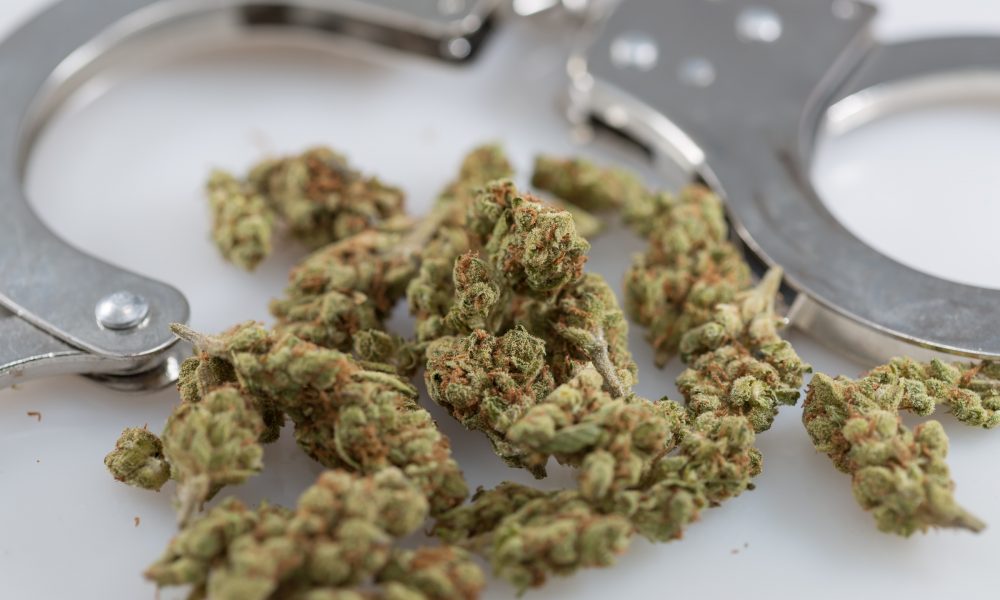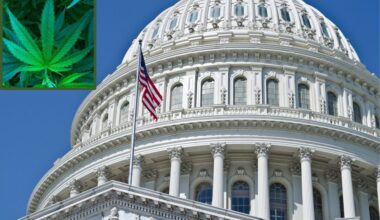Members of the American Medical Association (AMA) voted to adopt a measure this week expressing support for expunging prior marijuana records in states that have legalized cannabis.
The organization’s House of Delegates—which maintains an overarching policy opposing legalization—also approved separate resolutions addressing the “over-medicalization” of cannabis and criticizing the marketing of CBD products. A fourth resolution calling for allocation of federal resources to tackle “cannabis dependence,” which would be funded by a tax on marijuana businesses, was set aside.
“Fundamental fairness and equity principles argue that individuals with an arrest or conviction for cannabis-related offenses—that occurred before legalization that would make such action legal—should not suffer further legal or public health adverse effects,” the expungements report adopted by the group says.
“In addition, the net social benefits to expungement should not be used to set aside or minimize the health risks associated with cannabis use—particularly for youth and adolescents,” it continues. “Even when states take action to positively address legal inequities and support social determinants of health, there remain significant adverse health effects of cannabis use for youth and adolescents.”
AMA, which worked to overturn a voter-approved a Mississippi cannabis reform initiative, has previously published research in its own own scientific journal indicating that legalization doesn’t lead to increased youth use.
In any case, a related resolution that members discussed at their annual meeting says there’s a “clear link between incarceration and health, with incarcerated individuals showing higher risk of chronic conditions such as cardiovascular disease, hypertension, and cancer compared to the general population.”
“Arrests for marijuana possession, regardless of whether the person was later convicted on these charges, have been shown to negatively impact opportunities such as finding employment, housing, and obtaining student loans, which can lead to widespread and multifactorial individual health consequences; furthermore, criminalization of drug use is associated with increased stigma and discrimination of drug users and that stigma and discrimination is also a causal factor for decreased mental and physical health.”
Therefore, the organization’s members voted to support “automatic expungement, sealing, and similar efforts regarding an arrest or conviction for a cannabis-related offense for use or possession that would be legal or criminalized [sic] under subsequent state legalization or decriminalization of adult use or medicinal cannabis.”
The adopted measure also says the group backs “ending conditions such as parole, probation, or other court-required supervision because of a cannabis-related offense for use or possession that would be legal or decriminalized under subsequent state legalization or decriminalization of adult use or medicinal cannabis.”
AMA Trustee Scott Ferguson reiterated said in a press release that cannabis arrests have led to a loss of job opportunities in the field of medicine.
“It simply isn’t fair to ruin a life based on actions that result in convictions but are subsequently legalized or decriminalized,” he said.
The association’s delegates also approved two other cannabis resolutions at the meeting.
One measure encourages federal agencies to push back against the “over-medicalization” of marijuana at the state level.
“The cannabis-legalization movement has swept the country… In states where medical cannabis has been legalized, marketing for cannabis for ‘all your ills’ has become excessive,” it says. “Inadequate information about the potential dangers/harms of cannabis (especially among vulnerable populations) is available, especially amid the storm of pro-cannabis marketing from that industry.”
“This results in the lay public considering cannabis to be as safe as Tylenol, or carrots,” the measure says.
To that end, it says AMA will write a letter to the Food and Drug Administration (FDA) and Federal Trade Commission (FTC) “requesting more direct oversight of the marketing of cannabis for medical use” as well as a template letter that state medical societies can use to push for “more direct oversight by state government of the marketing of cannabis.”
It additionally directs AMA to “study marketing practices of cannabis, cannabis products and cannabis paraphernalia that influence vulnerable populations, such as children or pregnant people.”
Another measure adopted by the AMA delegates takes aim at CBD, which has become widely available across the U.S. following the federal legalization of hemp and its derivatives, so long as products don’t exceed 0.3 percent THC by dry weight.
“CBD oil is often marketed in ways that falsely imply medical doctor approval, verification or endorsement,” it says.
The resolution supports “banning the advertising of cannabidiol (CBD) as a component of marijuana in places that children frequent” and also “legislation and regulatory actions at the federal and state level to prohibit companies from selling CBD products if they make any unproven health and therapeutic claims.”
An additional measure as drafted called on the National Institutes of Health (NIH) to provide research funding for the treatment of marijuana use disorders. Notably, it also said that money for the grants should be “financed by taxes on those who profit from selling cannabis.”
But it’s unclear how a federal tax on marijuana sales would be achieved without ending the ongoing prohibition policy that AMA continues to support.
“There is no effective medication for treating dependence on cannabis. It is well known the use of cannabis can lead to addiction,” the AMA measure, which was set aside so that existing AMA policy could be reaffirmed, said. Therefore, NIH should appropriate grants to “universities, pharmaceutical companies and other capable entities to develop treatment options for cannabis dependence.”
Another major U.S. medical group—the American Society of Addiction Medicine (ASAM)—separately shifted its cannabis policy in 2020, adopting a platform in favor of protecting people who use cannabis in compliance with state laws from being punished by the federal government. It’s also backed expungements and the rescheduling of medical marijuana.
Teen Marijuana Use Dropped Dramatically In Colorado In 2021, State Study Finds
Medical Disclaimer:
The information provided in these blog posts is intended for general informational and educational purposes only. It is not a substitute for professional medical advice, diagnosis, or treatment. Always seek the advice of your physician or other qualified healthcare provider with any questions you may have regarding a medical condition. The use of any information provided in these blog posts is solely at your own risk. The authors and the website do not recommend or endorse any specific products, treatments, or procedures mentioned. Reliance on any information in these blog posts is solely at your own discretion.







